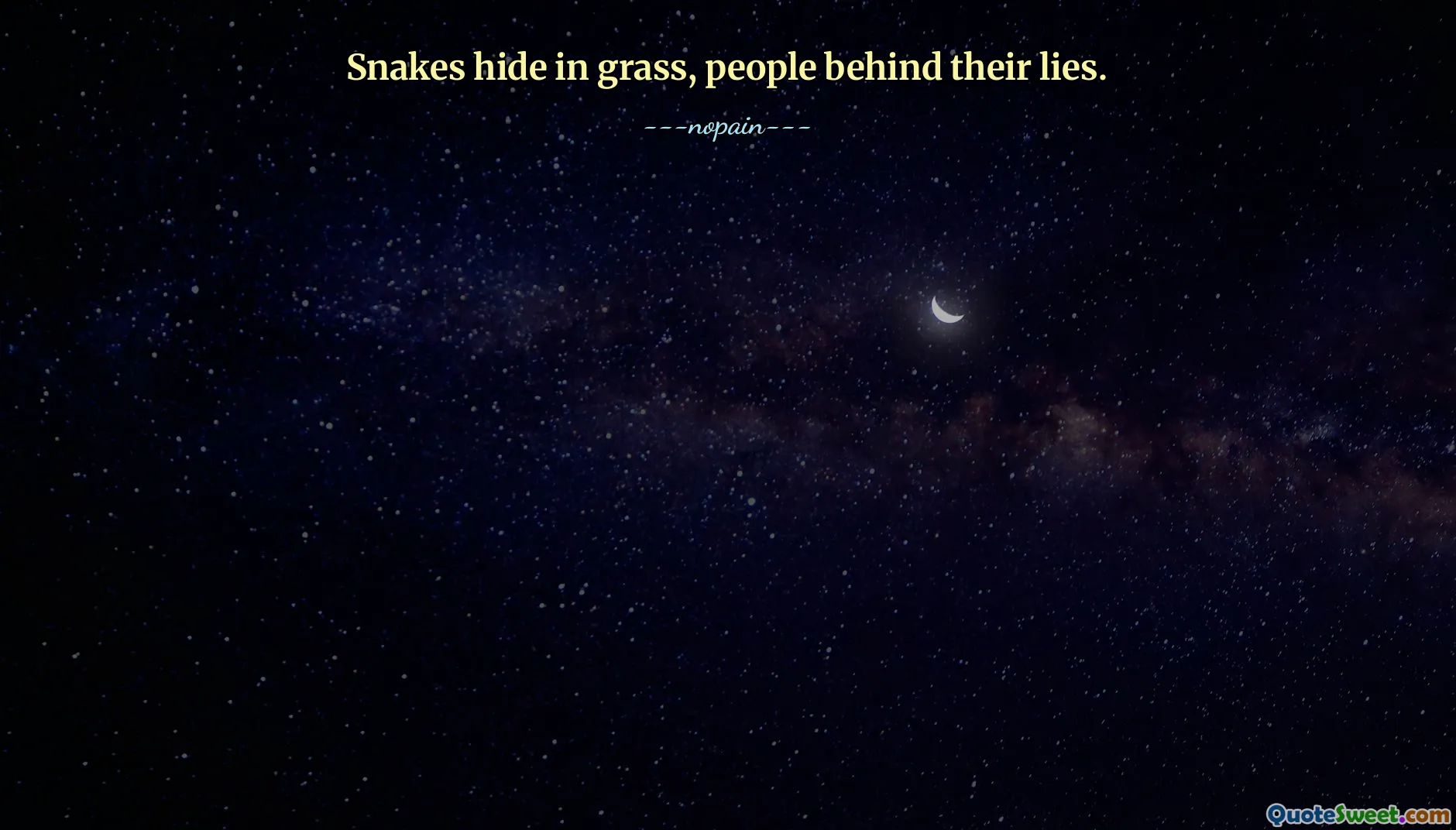
Snakes hide in grass, people behind their lies.
This quote highlights the deceptive nature of both animals and humans, emphasizing how appearances can be misleading. Snakes, naturally cautious and camouflaged, symbolize danger lurking unnoticed, reminding us that evil or harm may be concealed beneath innocent facades. Similarly, humans often wear masks of honesty or trustworthiness, hiding their true intentions behind lies or deception. It serves as a cautionary reminder to remain vigilant and discerning, especially when dealing with individuals whose motives are not transparent. In social interactions, it's easy to be deceived by outward appearances or surface-level expressions; thus, developing awareness and skepticism can prevent us from being manipulated or harmed. The analogy encourages introspection about one's own honesty and transparency; are we like the 'grass' hiding the potential for good or evil? Moreover, it suggests the importance of awareness in our surroundings—knowing where danger might be lurking and not taking everything at face value. Through this reflection, one might consider the value of trust, the necessity for verification, and the significance of observing consistent behavior before forming judgments. It also prompts consideration of integrity and the importance of cultivating open, honest relationships built on truthfulness rather than deception, fostering genuine connections that can withstand scrutiny. Ultimately, this quote serves as a profound reminder that concealment is often a survival mechanism—whether for predators, like snakes, or for humans choosing to hide their true selves. Recognizing this helps us navigate the complex social world more wisely and compassionately.











